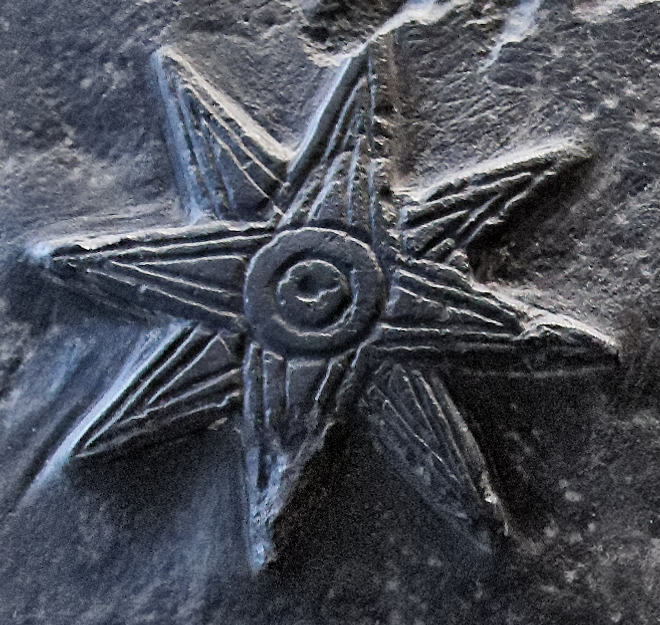It is my honor to present this year's May Day (also known as International Worker's Day) thread. This year, I'd like to dedicate the thread to one of the great moments in the history of organized labor (text courtesy of the AFL-CIO).
With the official end of slavery less than two decades before, thousands of black laundresses went on strike for higher wages, respect for their work, and control over how their work was organized. In summer 1881, the laundresses took on Atlanta’s business and political establishment and gained so much support they threatened to call a general strike, which would have shut the city down.
Atlanta in the early 1880s was just beginning to develop. Less than two decades had passed since the Civil War ended. The city had primitive water and sewer systems, and unsanitary trash lined the unpaved streets. Atlanta’s businessmen and politicians sought to paint a very different picture to lure northern businesses to the city, spotlighting it as the urban center of the New South with a large, subservient workforce.
More than half of the city’s black residents—and half of the black wage earners—were women. Black women largely were responsible for sustaining not only their families but their communities as well. One-third of black women living in Atlanta, as in other cities, raised families alone.
Nearly all (98 percent) of these black working women were household workers. On average, women began working as domestics between age 10 and 16 and worked until age 65 or older. In the 1880s, more black women worked as laundresses than in any other type of domestic work. The city had more laundresses than male common laborers. In contrast, only a small portion of white women worked for pay, and the average white family could afford the services of at least a washerwoman.
Laundry work was the most difficult of domestic jobs, and industrialization made the chore even more dreadful. Manufactured cloth—especially washable fabrics such as cotton—made clothing more available so people had more clothes than ever before. Laundry work was the first chore women would hire someone else to perform if her family had the slightest bit of extra money. In the North, women would send their family’s dirty clothes to a commercial laundry at the time. But in the South, technology was lagging and even poor whites could send some wash to black women.
Laundresses worked long, tiring hours and their wages ranged from $4 to $8 a month. These wages changed little over time and laundresses would increase their earnings by adding on clients or getting help from their children. Laundresses worked mostly in their own homes or in their neighborhoods with other women. They worked outside in the shade when weather permitted or inside their homes, hanging clothes all over the house to dry.
They made their own soap from lye, starch from wheat bran and washtubs from beer barrels cut in half. Their work began on Monday mornings and continued throughout the week until the clean clothes were delivered on Saturday. Throughout the week, they would carry gallons of water from wells, pumps or hydrants for washing, boiling and rinsing clothes. Then, after hanging the clothes to dry, the women would iron, alternately using several heavy irons at a time.
In July 1881, 20 laundresses met to form a trade organization, the Washing Society. They sought higher pay, respect and autonomy over their work and established a uniform rate at $1 per dozen pounds of wash. With the help of black ministers throughout the city, they held a mass meeting and called a strike to achieve higher pay at the uniform rate.
The Washing Society, or "Washing Amazons," as their opponents called them, established door-to-door canvassing to widen their membership, urging laundresses across the city to join or honor the strike. They also involved white laundresses, who were less than 2 percent of laundresses in the city—an extraordinary sign of interracial solidarity for the time.
In three weeks, the Washing Society grew from 20 to 3,000 strikers.
By August, municipal authorities were taking direct action, arresting strikers, fining members and making house visits. The laundresses were not deterred. But the white establishment was so agitated that city politicians got involved. The City Council proposed that members of any washerwoman’s organization pay an annual fee of $25 and then offered nonprofit tax status to businesses that wanted to start commercial laundries. Even though the $25 fee would mean several months of wages, the strikers were not discouraged. They responded with a letter to the mayor, agreeing to pay the fees rather than be defeated. "We mean business...or no washing," the letter stated.
These politically savvy women workers were willing to pay the fee in exchange for self-regulation. To them, self-regulation of their industry was about respect. In the post-Civil War South, the laundresses refused to be seen as subordinate. These laundresses saw the strike as asserting their freedom and identity and gaining respect for their work.
The resolve of the striking laundresses—despite the arrests, fines and proposed fees—inspired other domestic workers. Cooks, maids and nurses began demanding higher wages. Hotel workers went on strike. Unlike past strikes, employers—aware of the magnitude of the black labor unrest—weren’t confident they could find replacement workers. So the following week, the City Council rejected the proposed fees. The laundresses had prevailed.
In the end, the strike not only raised wages—it, more importantly, established laundresses—and all black women workers—as instrumental to the New South’s economy. The white establishment was forced to acknowledge that black women workers, who were former slaves, were not invisible.
Workers Of The World, Unite! You Have Nothing To Lose But Your Chains!
If you ever want to make your own megathread, you can go here to reserve a spot! :xinternet:
Resources for Organizing your workplace/community :sabo:
Comprehensive list of resources for those in need of an abortion :feminism:
Resources for Palestine :palestine-heart:
Buy coffee and learn more about the Zapatistas in Chiapas here :EZLN:
Here are some resources on Prison Abolition :brick-police:
Foundations of Leninism :USSR:
:lenin-shining: :unity: :kropotkin-shining:
Anarchism and Other Essays :ancom:
Remember, sort by new you :LIB:
Follow the Hexbear twitter account :comrade-birdie:
THEORY; it’s good for what ails you (all kinds of tendencies inside!) :RIchard-D-Wolff:
COMMUNITY CALENDAR - AN EXPERIMENT IN PROMOTING USER ORGANIZING EFFORTS :af:
Come listen to music with your fellow Hexbears in Cy.tube :og-hex-bear:
Queer stuff? Come talk in the New weekly queer thread :sicko-queer:
Monthly Neurodiverse Megathread and Monthly ND Venting Thread :Care-Comrade:
And remember, you can join specific comms to see posts and post about all sorts of topics! Also, reminder that Hexbear’s algorithm prioritizes comments and discussions over upbears!
had a nice 'heated discussion' with a left anti communist calling my CCCP shirt 'triggering' to Ukrainian refugees and offensive. lmao radlibs stay mad, 30 years after its dissolution the Soviet Union lives in your head rent free
some niche Russians see the Soviet Union as a high point of Russian strength and so leftists have to denounce the history of the workers and peasants who liberated themselves from tsarism and fascism? fuck off
So-called leftists out here not even following the left hand path 👿👿👿
nothing recharges your energy for leftism like thousands of comrades with red flags, banners of Stalin, dozens of party logos marching for miles. discussions, books and flyers all going around, it's all something that makes you realise there's a lot of people out there who do care to make a better world at a rally :bloomer:
though I could do without the 20 trot parties trying to recruit me every 20 minutes
DTB walking around with a bunch of newspapers stacked over her head
I met the most baby ML today. my man had a spotless flat cap, a Lenin pin, a Soviet flag with the creases still in. nice guy, he was debating on some live stream this guy was doing and I hung out nearby in case the dude was a right wing nutjob and I could pull the comrade out of the situation as he seemed a bit naive and meek. we got chatting afterwards and it was clear he knew some things but not a lot of depth. good comrade though, hope he learns some more theory before going onto street debate streams with his Soviet flag next time tho
the bug where someone else's comment pops into your comment history is fun. it let's you get a little peak at what everyone else is doing.
there's a guy with a black army death to all tha who stand in the way ect flag standing next to a guy with a Soviet flag, and they're both trying to not acknowledge one another and it's very funny
also within 15 seconds of getting to the rallying point a trot tried to sell me a newspaper. that's the real spirit of may day
Trots' persistence with the newspapers is something other tendencies would do well to imitate imo
I bought a couple Marxist Leninist ones, they defo are out there, and anarchists zines
I got a pic but imma need to get home to blur faces first
We live in a post-nerds time, so it's time to post, nerds.
@aaaaaaadjsf @Abraxiel @AnarchaPrincess @Antilope @Alaskaball @BrookeBaybee @bbnh69420 @budoguytenkaichi @buh @CARCOSA @CDommunist @Cherufe @ClathrateG @ClimateChangeAnxiety @clover @comi @ComradeCmdrPiggy @ComradeEchidna @context @congressbaseballfan @crime @DasKarlBarx @DeathToBritain @Dirt_Owl @Eco @ella @el_principito @EmmaGoldman @FidelCashflow @GalaxyBrain @Goadstool @GoroAkechi @Grownbravy @halfmoon @JamesConeZone @Kanna @Kaputnik @kristina @Koa_lala @LeninWeave @LoudMuffin @Lundi @marxisthayaca @MaybeNickCage @MelaniaTrump @Mindfury @Ness @PM_ME_YOUR_FOUCAULTS @PorkrollPosadist @PootrKrobuttkin @PurrLure @Ram_The_Manparts @Redcuban1959 @REallyN @RNAi @RoseColoredVoid @Sandinband @SorosFootSoldier @Spike @TankieTanuki @Tervell @ThisMachinePostsHog @Trouble @ultraviolet @UlyssesT @viva_la_juche @WIIHAPPYFEW @Wmill @wtypstanaccount04 @Yanqui_UXO @Zoift
Wishing there were may day events where I lived :sicko-no:
Bruh it's consistently shocking to me how little EMT's get paid
How the fuck does capitalist society even function lmao
FUCKING LOL
Amendment to my previous post: this year, certain traditional May Day songs were not played on Finnish radio due to well, take a guess
"Uncle Lenin lives in Russia", a children's song based on a North Vietnamese poem was one of the songs that got the axe:
https://fi.wikipedia.org/wiki/Lenin-set%C3%A4_asuu_Ven%C3%A4j%C3%A4ll%C3%A4
Lenin-setä asuu Venäjällä, ja sieltä on pitkä matka Vietnamiin. Mutta minusta vain tuntuu, että Lenin-setä asuu yhtä lähellä kuin setä Ho-Chi Minh.
Uncle Lenin lives in Russia, which is far away from Vietnam. But to me it feels like Uncle Lenin is as close to me as Uncle Ho Chi Minh.
Sounds like pro-Putin propaganda to me
wearing my CCCP shirt with big hammer and sickle on it today, just in case anybody at may day gets confused and thinks I'm a fucking lib
there are more than enough absolutely unhinged Eastern Europeans in London who will try to stab you for it, don't worry
humming and hawing over bringing my soviet flag. it's a full sized one and I have a collapsible flag pole, but it gets so tiring waving a big flag and then you gotta carry that shit all day and evening
Anyone else shocked at how quickly the US turned to genociding trans people? I thought we'd have until mid decade at least. :doomjak:









